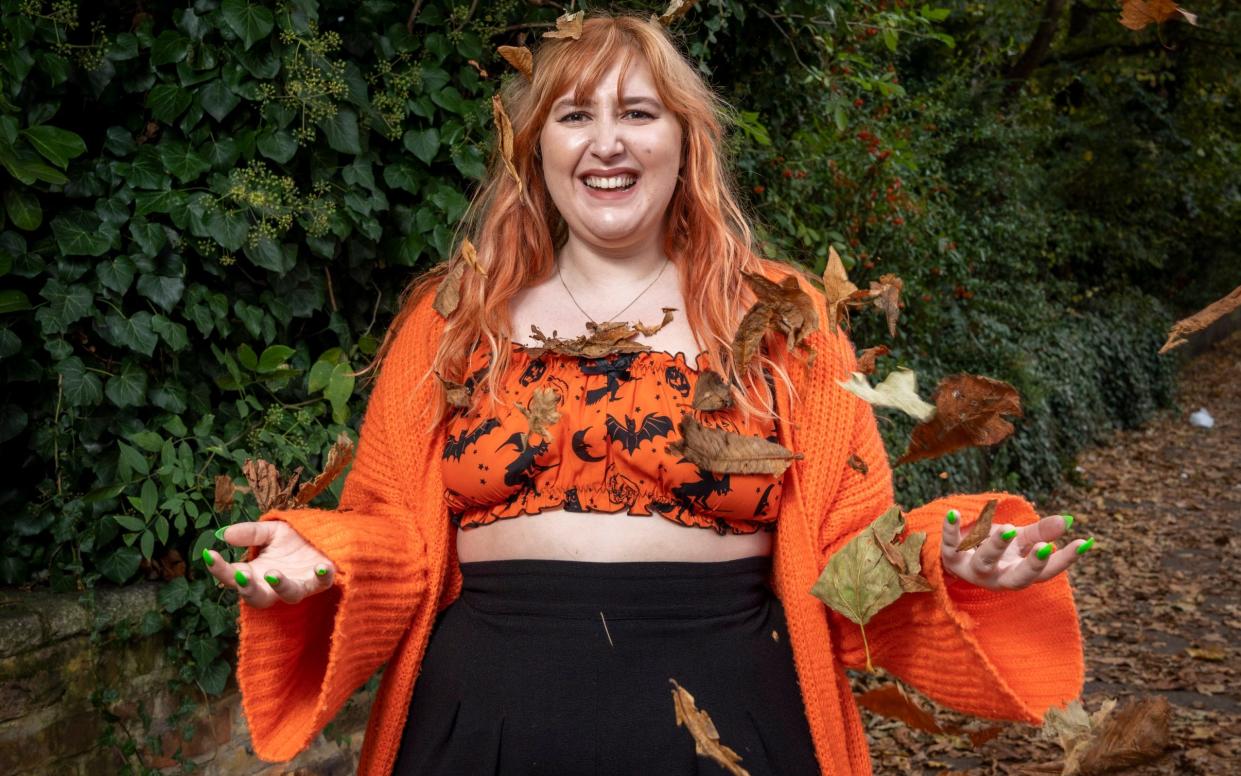I know how Honey Ross feels about toxic childhood diets - they damaged me, too

Honey Ross – body positive influencer, and daughter of Jonathan Ross and Jane Goldman – might have had a slightly awkward family breakfast this morning. This week, she went on Loose Women and reportedly "slammed" her parents for putting her on a diet when she was a teenager.
Of course, if you watch the actual interview you’ll see that she didn’t "slam" anyone. But she did speak honestly about what happens to your relationship with your body as an adult if, as a child, the first thing the adults around you did was offer dieting as an answer to any issues.
She said: ‘They [Ross and Goldman] saw me, a teenage girl coming home saying, 'I hate my body.' They tried to give me solutions to a problem I brought to them, which was to lose weight. They presented me with diets, and diets, as we know, don’t work and are absolutely toxic.”
Like Ross, I spent a lot of my teens talking about how much I hated my (prematurely adult) body. And like Ross, the adults in my life viewed my weight as an object of concern. Despite the fact that I was a medically ‘healthy’ weight into adulthood, I went on my first diet when I was nine or ten.
The first time I was taken to the GP about my weight, aged 13, I cried when she told me that I was "normal". I was so used to thinking of myself as a huge blob, the idea that I had a healthy BMI was anathema. But by that point the damage was done. I had started a war with my body which would see me throwing up most of what I ate in my teens, intermittently starving myself in my early twenties, addicted to high impact work-outs in my mid-twenties, and using therapy to try to find a fragile peace as I approach 30.

The Goldman-Ross mistake of putting your child on a diet is not unique to them as celebrity parents. Panicking about your child’s weight seemed to be a pretty standard experience among my female friends, especially those whose parents had high hopes for them.
The list of things we were supposed to achieve was a mile long: great grades, good friends, a hobby, a language, a musical instrument, a nice boyfriend and a place at a Russell Group university. As was a slim figure. I know dozens of women who were offered bribes by their parents to lose weight when their puppy fat didn’t immediately disappear on their thirteenth birthday. Holidays, cars, even stone-cold cash were all on the table for those willing to forgo school puddings for melba toasts.
I don’t judge Ross and Goldman for encouraging their daughter to diet, any more than I judge the parents of my friends who offered weight loss "incentives" or my own parents who actively supported my attempts at dieting as a child. It was a different time, when body positivity was a mere dot on the horizon. When I was a teenager, if you felt sad about the size of your thighs, you just ate less. That was that.
But even in the age of the plus-size influencer, if I could choose for my child to be thin, I would. Just as I would choose for my child to be able-bodied and clever and charming. I would want them to have every single tool that would make their life easier, so that they didn't have to struggle - and so that I didn't have to watch them struggle.
As much as I hope my future children have super speedy metabolisms and a deep love of HIIT, I will not do the same thing that my parents, and Ross’s parents, did. Not because I am better than them, or because I am going to be the perfect body positive parent. But because we know from a very solid body of evidence that putting your teenager on a diet does not work in the long run.

According to research from the Norwegian University of Science and Technology in 2012, 60 percent of teenage girls who reported thinking that they were fat (whether they were overweight or not) were actually overweight 10 years later. The researchers concluded that girls who think they are fat will embark on extremely unhealthy binge and purge cycles in an attempt to lose weight, which ultimately ends up in weight gain.
Anecdotally this stands true. The women I know who grew up with snacks in the house, whose parents didn’t look ashen faced when they ordered dessert, whose puppy fat when entirely unremarked upon, have ended up with the healthiest body image and lower body weights. Those of us who were paranoid about our weight from childhood are heavier as adults.
In her interview, Ross concluded by saying: “"My advice to parents is keep that as far away from your children as possible, if you want them to have a good relationship with food and their bodies growing up do not shame them.”
She’s right. Keeping the word "diet" away from your children for as long as possible, and never yielding to the temptation to put them on any kind of restrictive eating plan might sound like liberal leftie flower-power parenting.
But it’s not. It’s looking at the evidence in front of you and making a pragmatic choice. If your goal is to raise a child who has a healthy body and a healthy mind, keeping them as far away from diet culture as possible is, unquestionably, the way to do it.


